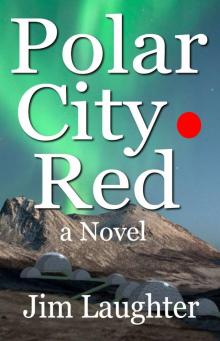In the distant
future—some say the near future—North America, northern Asia and Europe will
see millions of climate refugees from southern lands trekking northward, and
the entire Lower 48 might be under threat from the devastating impacts of
“climate chaos” —from rising sea levels to a scary scarcity of food, fuel and
shelter.
Polar City Red is
set in an imagined Alaska in the year 2075. But it could just as well be Tokyo
or Oslo or Berlin. Global warming is borderless, and so are our fears.
“A thought
experiment that might prod people out of their comfort zone on climate.” —New
York Times
“Planning a good
retreat is always a good measure of generalship. The retreat will be toward the
poles.” —New York Times
“We cannot regard
the future of the civilized world in the same way as we see our personal
futures. The planet may have already passed the tipping point on global
warming. Is it already too late? Are the well-intentioned preservation
campaigns just feel-good window dressing?” —James Lovelock, CBE, FRS, author of
Gaia: A New Look at Life on Earth
(2000)
“We’re seeing the
collapse of the Arctic sea ice. This year (2011) alone, planet Earth lost an
area of Arctic sea ice twice the size of British Columbia. The impact on the
entire global climate system will be enormous—the Arctic sea ice is the canary
in the coal mine, and the canary is almost dead.” —Dr. Michael Byers, Professor
of Politics and International Law at the University of British Columbia
future—some say the near future—North America, northern Asia and Europe will
see millions of climate refugees from southern lands trekking northward, and
the entire Lower 48 might be under threat from the devastating impacts of
“climate chaos” —from rising sea levels to a scary scarcity of food, fuel and
shelter.
Polar City Red is
set in an imagined Alaska in the year 2075. But it could just as well be Tokyo
or Oslo or Berlin. Global warming is borderless, and so are our fears.
“A thought
experiment that might prod people out of their comfort zone on climate.” —New
York Times
“Planning a good
retreat is always a good measure of generalship. The retreat will be toward the
poles.” —New York Times
“We cannot regard
the future of the civilized world in the same way as we see our personal
futures. The planet may have already passed the tipping point on global
warming. Is it already too late? Are the well-intentioned preservation
campaigns just feel-good window dressing?” —James Lovelock, CBE, FRS, author of
Gaia: A New Look at Life on Earth
(2000)
“We’re seeing the
collapse of the Arctic sea ice. This year (2011) alone, planet Earth lost an
area of Arctic sea ice twice the size of British Columbia. The impact on the
entire global climate system will be enormous—the Arctic sea ice is the canary
in the coal mine, and the canary is almost dead.” —Dr. Michael Byers, Professor
of Politics and International Law at the University of British Columbia

 Fallen Queen (Mariposa Book 1)
Fallen Queen (Mariposa Book 1) A Puppy for His Little
A Puppy for His Little Into the Madness
Into the Madness The Stray Human: A collage age urban fantasy with werewolves, werewolf community center book 1
The Stray Human: A collage age urban fantasy with werewolves, werewolf community center book 1 Everyone Has a Story
Everyone Has a Story For the Win
For the Win The Bhagavata Purana 3
The Bhagavata Purana 3 Recipe For Murder
Recipe For Murder